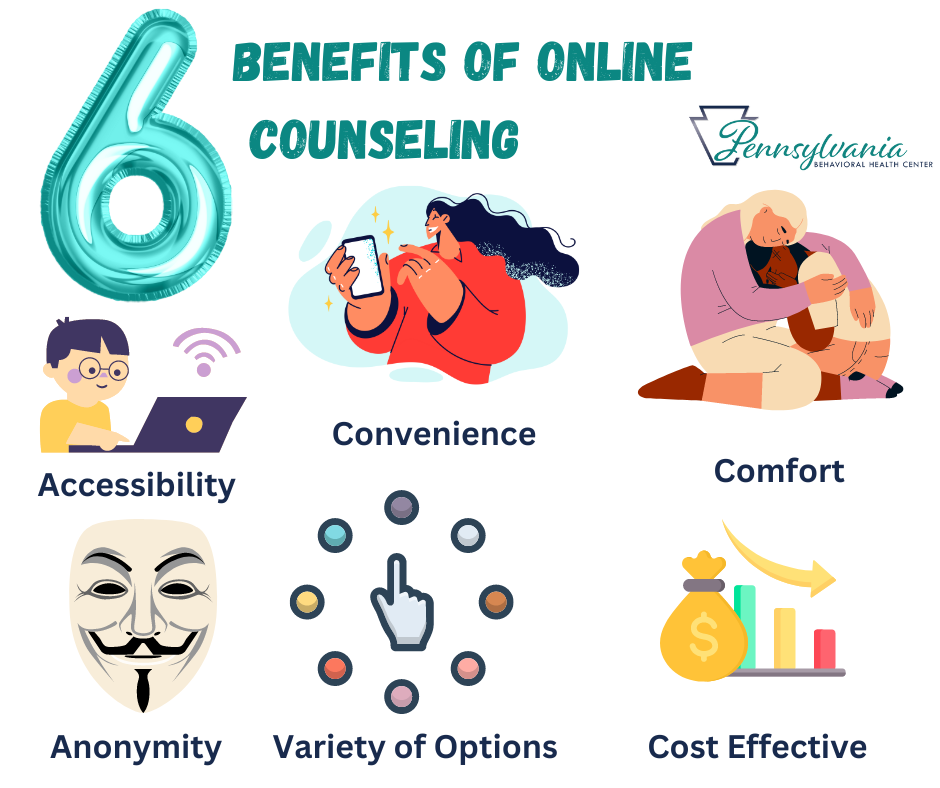Why Individual Teen Counselling is essential in today’s digital world
Wiki Article
Recognizing the Significance of Psychological Treatment for Teen Growth and Health
Mental therapy plays an essential duty in the development and health of teens. It resolves a range of psychological wellness concerns that can hinder their development. Through treatment, adolescents can learn crucial coping techniques and improve their emotional intelligence. This procedure cultivates resilience, enabling them to much better navigate life's obstacles. Nevertheless, several still think twice to engage in discussions regarding mental health and wellness. Checking out the reasons behind this hesitation discloses much deeper insights into the teenage experience.The Influence of Teen Mental Health on Overall Advancement
The interaction in between adolescent psychological health and total advancement is diverse and profound. During the crucial phase of adolescence, individuals undergo significant physical, psychological, and social modifications that form their identification and future. Mental wellness plays an essential role in this procedure, affecting scholastic efficiency, relationships, and self-esteem. Positive psychological health promotes strength and adaptability, enabling teens to browse difficulties effectively. Conversely, mental health issues can harm cognitive features, disrupt social communications, and hinder psychological policy, resulting in a waterfall of developmental problems.The setting in which teens expand-- including household characteristics, peer impacts, and societal assumptions-- interacts with their psychological well-being, more complicating their developmental trajectory. Recognizing the importance of mental health and wellness in this phase is necessary for promoting healthy growth and ensuring that teens can grow, both throughout their formative years and beyond. Prioritizing mental health and wellness support can significantly improve their total development and future possibility.
Common Mental Health And Wellness Issues Dealt With by Teenagers
While maneuvering via the complexities of adolescence, lots of teens run into a range of psychological health and wellness concerns that can considerably affect their lives. Stress and anxiety problems are widespread, often defined by extreme concern or fear that disrupts everyday tasks. Anxiety is one more typical problem, materializing as relentless despair, loss of rate of interest, and difficulty in functioning. Furthermore, behavior problems, such as oppositional defiant problem, can bring about conflicts with authority numbers and a battle to comply with societal standards. Consuming problems, including anorexia and bulimia, might emerge as teens come to grips with body picture and social stress. Compound abuse can develop as a misguided effort to cope with psychological distress. These psychological health difficulties, if unaddressed, can prevent academic efficiency and interpersonal partnerships, underscoring the need for understanding and assistance within this prone age group.
The Role of Therapy in Structure Coping Techniques
Therapy plays a substantial duty in gearing up young adults with effective coping methods to browse their mental wellness obstacles. Through organized sessions, specialists assist teens recognize and recognize their emotions, cultivating self-awareness. By utilizing different methods such as cognitive-behavioral therapy, teenagers learn to challenge adverse thought patterns and change them with useful ones. This process allows them to develop healthier reactions to stress factors.In addition, therapy provides a safe environment for teens to practice these techniques, facilitating the change from concept to real-life application. Role-playing and scenario analysis permit them to practice coping mechanisms in a helpful room. As teens deal with unique stress-- academic needs, social dynamics, and identification exploration-- having personalized coping approaches comes to be necessary. Ultimately, treatment not only addresses prompt worries but likewise imparts long-lasting abilities that allow teens to manage future challenges, promoting overall psychological health and resilience in their growth.
Fostering Durability and Emotional Knowledge Via Treatment
Exactly how can therapy nurture durability and emotional intelligence in young adults? Therapy supplies a risk-free atmosphere where adolescents can explore their feelings, ideas, and behaviors. Via assisted tasks and discussions, therapists help young adults recognize and recognize their feelings, cultivating psychological understanding. This recognition is a foundation of psychological intelligence, allowing them to feel sorry for others my latest blog post and handle interpersonal connections properly.Furthermore, treatment furnishes teenagers with devices to browse life's difficulties, promoting durability. By attending to previous injuries, dissatisfactions, and stressors, they learn to develop coping mechanisms that empower them to face difficulty. Therapists commonly urge goal-setting, which imparts a sense of objective and success.
As young adults practice these abilities in treatment, they become more check it out experienced at managing unpredictabilities and problems (Individual Therapy Toronto). Ultimately, this nurturing of resilience and psychological intelligence prepares them for the complexities of adult life, improving their general psychological wellness and health

Encouraging Open Discussion About Mental Wellness in Teenagers
What methods can successfully foster open discussion about psychological wellness among teens? Developing a encouraging and safe environment is basic. Moms and dads and teachers need to encourage conversations by normalizing conversations about mental wellness, stressing that it is a significant element of overall health. Active listening plays a vital role; grownups have to be attentive and non-judgmental when young adults share their problems or feelings.Incorporating psychological health education into school curriculums can additionally promote open dialogue. Workshops, peer support groups, and psychological health and wellness recognition projects can equip teenagers to express themselves extra openly. Additionally, using social networks platforms can be helpful, as they are frequently where teens really feel most comfy communicating. By fostering an environment of trust and visibility, grownups can aid teens comprehend that talking about mental health and wellness is not just acceptable however necessary for their advancement and psychological health and wellness.
Regularly Asked Questions
Exactly How Can Parents Recognize Indicators of Mental Wellness Issues in Teenagers?
Moms and dads can recognize indications of mental wellness concerns in teenagers by observing changes in actions, state of mind swings, withdrawal from tasks, decreasing academic performance, changes in rest or hunger, and revealing sensations of hopelessness or anxiety.What Sorts of Treatment Are Many Reliable for Teenagers?
Cognitive Behavior Modification (CBT), Dialectical Behavior Modification (DBT), and team treatment are among the most efficient kinds for teens. Individual Therapy For Teens. These methods cultivate coping skills, psychological law, and give peer support, crucial for teen psychological healthExactly How Can Treatment Assistance Academic Performance in Teenagers?

What Should Teenagers Anticipate Throughout Their First Therapy Session?
During their initial treatment session, teenagers can anticipate an inviting setting, an intro to the therapist, discussions concerning their problems, and developing objectives (Individual Teen Counselling). Confidentiality and the therapeutic process will additionally be clarified to foster comfort and trust fundExactly How Can Teens Find a Therapist That Matches Their Demands?
Teens can locate an ideal therapist by seeking referrals from trusted adults, researching on-line directories, considering specializeds, and scheduling initial consultations to analyze compatibility and communication designs, eventually guaranteeing a supportive restorative relationship.
Report this wiki page